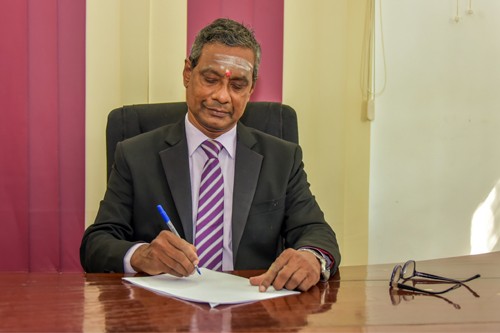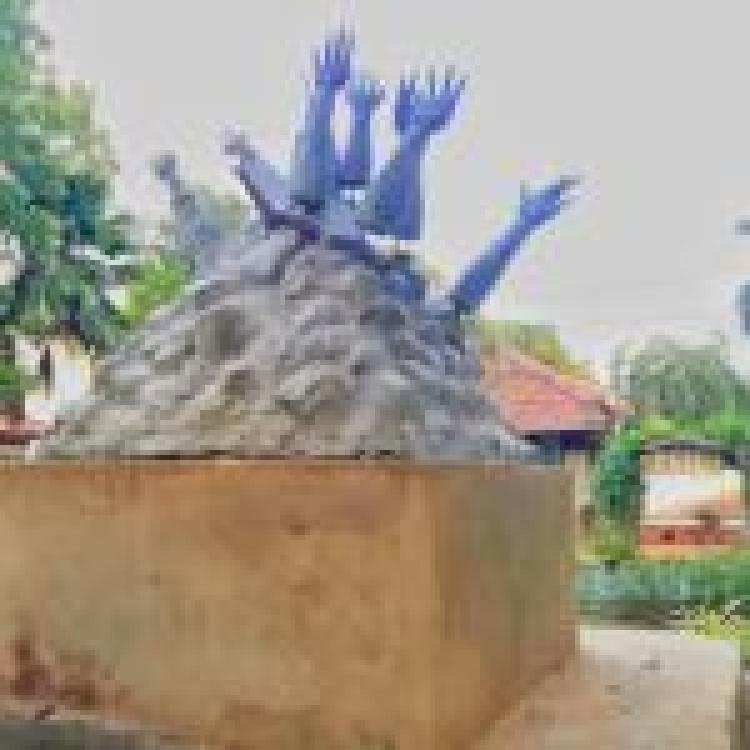
Jaffna University Vice-Chancellor, Professor Sivakolundu Srisatkunarajah claims that the demolition of the Mullivaikkal memorial in the university campus ensured protection of older monuments.
Last night, dozens of Tamils demonstrated in front of the university premises as authorities bulldozed a memorial monument erected in 2019 by the University Students Union, dedicated to the tens of thousands of Tamils killed in Mullivaikkal by the Sri Lankan state.
When questioned about the protests, the Vice-Chancellor responded:
“The University of Jaffna is a property of the government. It is my duty to implement the directives of the government. No permission was obtained from the government to build the memorial in question. It is on that basis that I was in a position to tear down the statue.
The advisory letter I received counselled that all unauthorised monuments in the campus be taken down. I gave orders to demolish the statue on the basis of my request that no further intrusions be made into the matter.
If I had failed to execute the demolition of the May 18 monument, other memorial structures in the university including the Pongu Tamil monument and the Maaveerar Naal commemorative structure would also have been destroyed. It is to prevent that from happening that I, with help from the administration, demolished the unauthorised May 18 monument in the university.”
In response to the protests, the Vice-Chancellor denigrated the protesters and warned them that ‘they will be dealt with’ if they continued with their demonstration.
Jaffna University's former Head of Law, Dr K Guruparan expressed concern over the incident and explained that the previous Vice-Chancellor was fired from the position for his refusal to destroy the monument.
.jpeg)
A photograph circulating on social media reportedly shows the current Vice-Chancellor showing Sri Lanka's army one of the many monuments inside the university campus.

